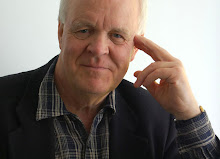Thursday, March 29, 2007
Monday, March 12, 2007
Fifty years ago

 Fifty years ago, in March 1957, Mervyn Peake's play The Wit to Woo began it's run at the Arts Theatre in the West End. This image shows Guiseppe, one of the main characters in the play.
Fifty years ago, in March 1957, Mervyn Peake's play The Wit to Woo began it's run at the Arts Theatre in the West End. This image shows Guiseppe, one of the main characters in the play.Exactly fifty years later, on 27th March 2007, David Glass's stage adaptation of Gormenghast begins its own three week at the Battersea Arts Centre. Chosen as the production to commemorate the 25th anniversary of the opening of the Centre, we wish it all the best.
Visit the David Glass website for details and dates.
www.davidglassensemble.com/
Saturday, March 10, 2007
The Voice of the Heart in the TLS
This week's edition of The Times Literary Supplement praises G Peter Winnington's new book:
"This is the first critical monograph on Mervyn Peake’s work as a whole”, writes its author, G. Peter Winnington. The Voice of the Heart is, indeed, a thorough study of Peake’s “poems, plays, short stories and graphic work”. In separate chapters Winnington examines Peake’s understanding of the creative process, recurrent motifs in his oeuvre (such as solitude, islands, animals, birds) and larger thematic complexes (love, identity and evil). The book concludes with discussions of Peake’s rarely discussed novel Mr Pye and Peake’s work in the theatre, especially his play The Wit to Woo, which ran briefly in the Arts Theatre in London in 1957. Winnington rightly concentrates on Peake’s Gormenghast novels, but also considers lesser-known texts like Captain Slaughterboard Drops Anchor and Letters from a Lost Uncle.
"This is the first critical monograph on Mervyn Peake’s work as a whole”, writes its author, G. Peter Winnington. The Voice of the Heart is, indeed, a thorough study of Peake’s “poems, plays, short stories and graphic work”. In separate chapters Winnington examines Peake’s understanding of the creative process, recurrent motifs in his oeuvre (such as solitude, islands, animals, birds) and larger thematic complexes (love, identity and evil). The book concludes with discussions of Peake’s rarely discussed novel Mr Pye and Peake’s work in the theatre, especially his play The Wit to Woo, which ran briefly in the Arts Theatre in London in 1957. Winnington rightly concentrates on Peake’s Gormenghast novels, but also considers lesser-known texts like Captain Slaughterboard Drops Anchor and Letters from a Lost Uncle.


